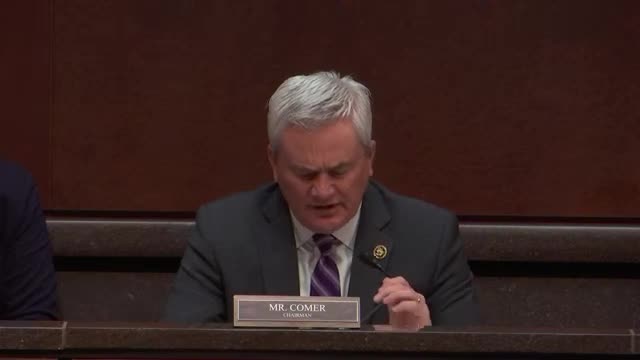Census Bureau prepares for critical 2030 count amid controversy
December 05, 2024 | Oversight and Reform: House Committee, Standing Committees - House & Senate, Congressional Hearings Compilation, Legislative, Federal
This article was created by AI summarizing key points discussed. AI makes mistakes, so for full details and context, please refer to the video of the full meeting. Please report any errors so we can fix them. Report an error »

The Census Bureau is already preparing for the 2030 Census, which is five years away. This preparation is crucial as it involves counting over 330 million people. The Bureau aims to engage with various stakeholders at national, state, and local levels to ensure full participation.
The 2020 Census faced significant challenges, revealing errors in 14 states that affected the accuracy of the count. These errors were notably different from those seen in the 2010 Census. The post enumeration survey indicated that some states, like New York and Massachusetts, had overcounts, while others, such as Texas and Florida, experienced undercounts. This miscounting impacted congressional representation and electoral college votes, with small population differences leading to significant changes in seat allocation.
For instance, New York's congressional seats were affected by a difference of just 89 people. The survey suggested that Colorado gained a seat due to miscounts, while Texas and Florida likely should have gained additional seats. The discussion highlighted the importance of understanding the issues from the 2020 Census, especially as demographic shifts occur across the country.
Additionally, the Equal Representation Act, which passed earlier this year, aims to ensure fairness in the electoral process. This legislation proposes adding a citizenship question to the census to ensure that only U.S. citizens are counted for congressional representation. The goal is to have this bill passed by Congress to enhance the accuracy of future censuses.
The meeting concluded with a call for collaboration and a commitment to improving the upcoming census, emphasizing the importance of accurate representation in the democratic process.
The 2020 Census faced significant challenges, revealing errors in 14 states that affected the accuracy of the count. These errors were notably different from those seen in the 2010 Census. The post enumeration survey indicated that some states, like New York and Massachusetts, had overcounts, while others, such as Texas and Florida, experienced undercounts. This miscounting impacted congressional representation and electoral college votes, with small population differences leading to significant changes in seat allocation.
For instance, New York's congressional seats were affected by a difference of just 89 people. The survey suggested that Colorado gained a seat due to miscounts, while Texas and Florida likely should have gained additional seats. The discussion highlighted the importance of understanding the issues from the 2020 Census, especially as demographic shifts occur across the country.
Additionally, the Equal Representation Act, which passed earlier this year, aims to ensure fairness in the electoral process. This legislation proposes adding a citizenship question to the census to ensure that only U.S. citizens are counted for congressional representation. The goal is to have this bill passed by Congress to enhance the accuracy of future censuses.
The meeting concluded with a call for collaboration and a commitment to improving the upcoming census, emphasizing the importance of accurate representation in the democratic process.
View the Full Meeting & All Its Details
This article offers just a summary. Unlock complete video, transcripts, and insights as a Founder Member.
✓
Watch full, unedited meeting videos
✓
Search every word spoken in unlimited transcripts
✓
AI summaries & real-time alerts (all government levels)
✓
Permanent access to expanding government content
30-day money-back guarantee
